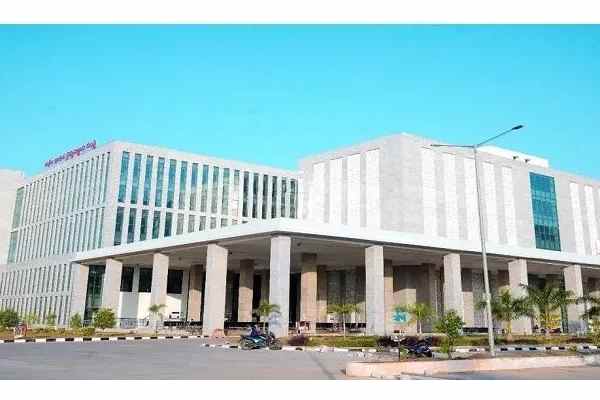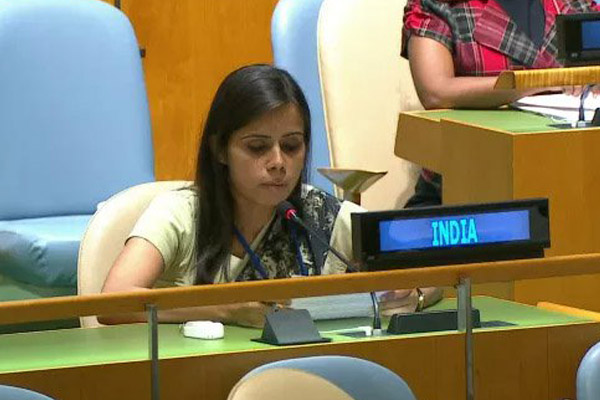India has raised the possibility that Pakistan is guilty of “war crimes” by sponsoring terrorism as an instrument of state policy, delivering one of the harshest criticism of its neighbour in an international forum in recent times.
Formally responding to Prime Minister Nawaz Sharif’s attacks on India during his speech to the General Assembly on Wednesday, Indian diplomat Eenam Gambhir said, “The worst violation of human rights is terrorism. When practiced as an instrument of state policy it is a war crime.”
Gambhir, who is a First Secretary at India’s UN Mission, was exercising the right of reply to Sharif’s caustic statements about India.
She accused Pakistan of being “a terrorist state, which channelises billions of dollars, much of it diverted from international aid, to training, financing and supporting terrorist groups as militant proxies against it neighbours.”
Gambhir invoked the 9/11 attacks on New York’s World Trade Center that killed about 3,000 people in 2001 and marked a tectonic shift in the international recognition of the horrors of terrorism.
“The world has not yet forgotten that the trail of that dastardly attack led all the way to Abbottabad in Pakistan,” she said.
Al Qaeda leader Osama Bin Laden who was responsible for the attack was found hiding in Abbottabad close to the Pakistan Military Academy and killed on May 2, 2011, in an operation led by the US.
Terrorist organisations and their leaders, “continue to roam its streets freely and operate with state support,” Gambhir said, adding “With the approval of authorities, many terrorist organisations raise funds openly in flagrant violation of Pakistan’s international obligations.”
Gambhir traced the web of terror spanning the world that converges on Pakistan and said, “It is ironical, therefore, that we have seen today the preaching of human rights and ostensible support for self-determination by a country which has established itself as the global epicentre of terrorism.”
“The land of Taxila, one of the greatest learning centres of ancient times, is now host to the Ivy League of terrorism,” she said. “The effect of its toxic curriculum are felt across the globe.”
She brought up Sunday’s terror attack at an army camp in Jammu and Kashmir’s Uri town that killed 18 soldiers.
“That terrorist attack is part of a trail of continuous flow of terrorists trained and armed by our neighbour and tasked to carry out terrorist attacks in my country,” Gambhir said.
Referring to Sharif’s glowing remarks about Burhan Wani, she said, “Even today we have heard support by the Prime Minister of Pakistan for a self-acknowledged commander of a known terrorist organisation, Hizbul Mujahideen.”
Sharif had accused India of starting an arms race on the subcontinent. He had asserted that Islamabad acted responsibly as a nuclear power and made a pitch for his country’s membership of the Nuclear Suppliers Group (NSG), an international group whose membership facilitates trade in nuclear materials for civilian use.
“Pakistan, whose nuclear proliferation record is marked by deception and deceit, (is) talking about restraint, renunciation and peace,” Gambhir said.
“Similar false promises it has made to us — the international community – on terrorism. Perhaps renunciation of lies and self-restraint on threats could be a good place for Pakistan to start.”
Exercising Islamabad’s right of reply to India’s right of reply, a Pakistani diplomat appealed to the international community, especially the Security Council members, to take up the Kashmir issue.
The Pakistani diplomat again brought up Burhan Wani calling his killing the spark for the recent wave of protests in Kashmir.

































